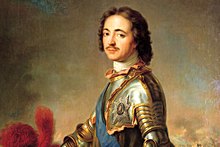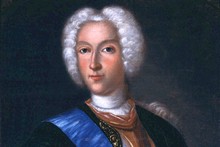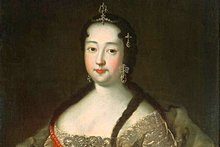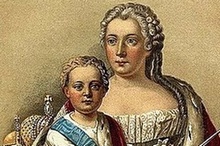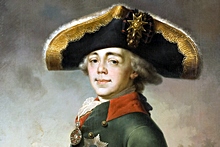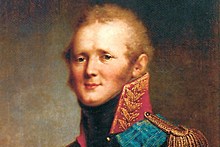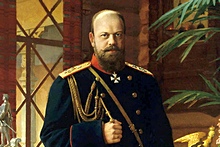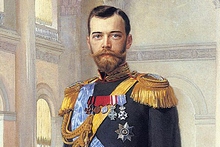The Romanovs: Lives of Russia's Imperial family
The last great despotic dynasty of Europe, the Romanovs ruled Russia for three centuries, presiding over the country's transformation into one of the world's great powers and precipitating its descent into revolution. Among the scions of the family were geniuses and simpletons, reformers and autocrats, degenerates and ascetics. Incredibly wealthy and wielding absolute power, they lived lives far outside the realm of common human experience that continue to fascinate nearly a century after their reign over the Russian Empire was brutally terminated.
The first Emperor of Russia and the founder of St. Petersburg, Peter the Great was one of the greatest leaders of the modern world. His reforming zeal, political astuteness and personal eccentricities combine to make him one of the best loved figures in Russian history.
Born in complete obscurity in Swedish Livonia, Catherine was captured by Russian troops during the Great Northern War and eventually caught the eye of Peter the Great, whose second wife she became. On his death, she became the first woman to rule the Russian Empire.
Peter the Great's grandson, Peter II ruled for only three years before dying of smallpox. His reign marked the old aristocracy's attempts to claw back some of the power they had lost under his grandfather, symbolized by the brief return of the capital to Moscow.
The daughter of Ivan V, Anna Ioannovna spent much of her life far from the Imperial Court in the provincial obscurity of Courland. Once on the throne, she indulged her passion for celebrations, hunting, and elaborate pranks, leaving the running of the country to her ambitious favourite, Ernst von Biron.
Appointed heir by his great-aunt, Anna Ioannovna, Ivan VI came to the throne at the age of six with his mother, Anna Leopoldovna, as regent. This effort to retain the throne for the descendants of Ivan V was precarious from the outset, and collapsed in less than a year.
Adored by the Guards regiments for her adherence to the policies of her father, Peter the Great, Elizabeth was brought to the throne by a palace coup. While the new empress enjoyed hunting and revels, her reign also saw the enactment of major reforms in the spirit of her illustrious father.
German-born and at one point a candidate for the throne of Sweden, Peter III was an enthusiast for Prussian militarism. There was no love lost between Peter and his adopted country, and despite attempting reforms to the benefit of the nobility he was quickly deposed in favor of his wife.
Born and raised in Germany, and with no legal claim to the Russian throne, Catherine nonetheless managed to become one of Russia's greatest rulers, famed for her enlightened policies, her victories over the Ottoman Empire, and her scandalous private life.
Unable to escape the shadow of his illustrious mother, Paul I was an eccentric ruler, obsessed with German militarism and medieval chivalry. His proto-fascistic policies alienated even his closest advisors, and he was assassinated after only five years on the throne.
Although his reign was overshadowed by his complicity in the murder of his father, Alexander I, who had been raised by his grandmother, Catherine II, not only undertook sweeping legal reforms that had far-reaching effects on Russian society, but also oversaw the country's glorious victory over Napoleon.
The Decembrist Revolt at the very start of his reign confirmed Nicholas I as a strictly conservative monarch. His militarist and chauvinist tendencies where in sharp contrast to the cultural "Golden Age" in literature, music and theatre that thrived during his reign.
Best known as the Emperor who abolished serfdom, Alexander II inherited an empire weakened by the Crimean War but proved a shrewd leader who restored Russia's fortunes while pushing through a program of progressive reforms. This did not prevent him from being assassinated by radical terrorists.
Traumatized by the murder of his father and by his experiences as a military commander, Alexander III pursued a harshly conservative domestic policy that restricted the liberties of his subjects, but his judicious foreign policy brought Russia 13 years of peace and economic prosperity.
The last Tsar of Russia remains a divisive figure. On the one hand, he is still mourned by large sections of Russian society who see the October Revolution as the start of a dark age in the country's history. On the other, there is little doubt his inept rule did much to precipitate the downfall of the monarchy.

